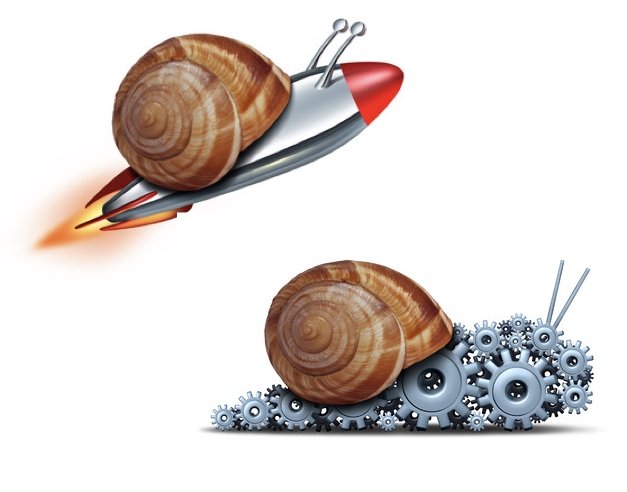Do we want to innovate or get more speed?
Perceptions about innovation are sometimes as important as innovation per se. Coinciding with the news of the exit of the United States of the first ten positions of the ranking of innovation of Bloomberg for the first time in its history, logical consequence of choosing a short-sighted imbecile and illiterate as president, the same character, within its absurd "Return to coal" imposes a tariff of 30% on imported solar panels, causing damage and an irreparable delay to the development of distributed generation of renewable energy in your country.
But not all the damage to innovation in the United States comes from the same idiot: there is also a problem of attitudes, of overprotection. In technologies as promising and with as much potential impact in the future as genetic publishing, China, lacking regulatory barriers to its application, has become the first country to develop tests with humans: it has been using technology to treat cancer patients since 2015, with all that this entails in the development of experience and expertise. No, China has not developed CRISPR, that merit corresponds, fundamentally, to North American researchers in North American institutions. However, if it is the country that owes the merit of having managed to pass CRISPR faster as a concept and as pure research, to real and specific contexts of applied research. If an entrepreneur, today, wanted to develop innovative applications for that technology, he would surely establish his company in China, not in the United States or in Europe.
If we use the same ranking of Bloomberg, China occupies position 19, still far from the top positions. However, it has been moving in the opposite direction to the United States for several years: this last year it has climbed two positions, mainly thanks to the strong increase of university graduates in science and engineering careers, and the development of a large industry created in large measured by people who emigrated to other countries, were trained and worked on them, and subsequently returned to China, within a perfectly designed plan and financed by both their government and companies. Increasingly, in areas such as social and mobile technologies, innovation occurs in China. When a company wants to expose its managers to a diverse and innovative environment, it sends them there.
For many years, what a person with sufficient economic resources was considering in the case of a complicated disease such as cancer was to undergo treatment in a North American clinic. Health in the United States is tremendously expensive and elitist, but it was also considered the most advanced. Now, if a person is affected by a complicated cancer, it is more than possible that he is more likely to receive successful treatment if he plans to go to a Chinese clinic. On an individual level, these types of decisions are obviously important, sometimes a matter of life or death. But at the level of collective perception, they also generate currents of thought that can have a much higher importance. When an increasingly significant part of research on cutting-edge issues takes place in one country while in others it is constantly delayed by regulatory problems, talent, which does not move precisely by light perceptions but by a generally serious and detailed analysis, begins to see clearly where to go to get trained or to work.
The first year of the Trump administration has been a disaster for innovation. The president not only has no idea of technology and innovation, but also lacks any type of interest: simply, he has not approached those concepts at all, not even to mention them. It has caused a brain drain not only in its administration, but at all levels, damaging the arrival of talent through immigration or hindering the arrival of bright students: a decrease of 7% in one year compared to the increase of more than one 25% of neighboring Canada. The big technology companies are rushing to open research centers in other countries with more open attitudes to try to maintain their ability to attract research talent.

The United States is no longer a country to go to educate, to go to look for work, or even to go to cure when sick: they are a country in recession in its image and international perception, regardless of whether they grow or decrease in economic terms. The consequences of choosing the wrong candidate.
what is this in image?
is a snail, the rocket characterizes speed and the other innovation